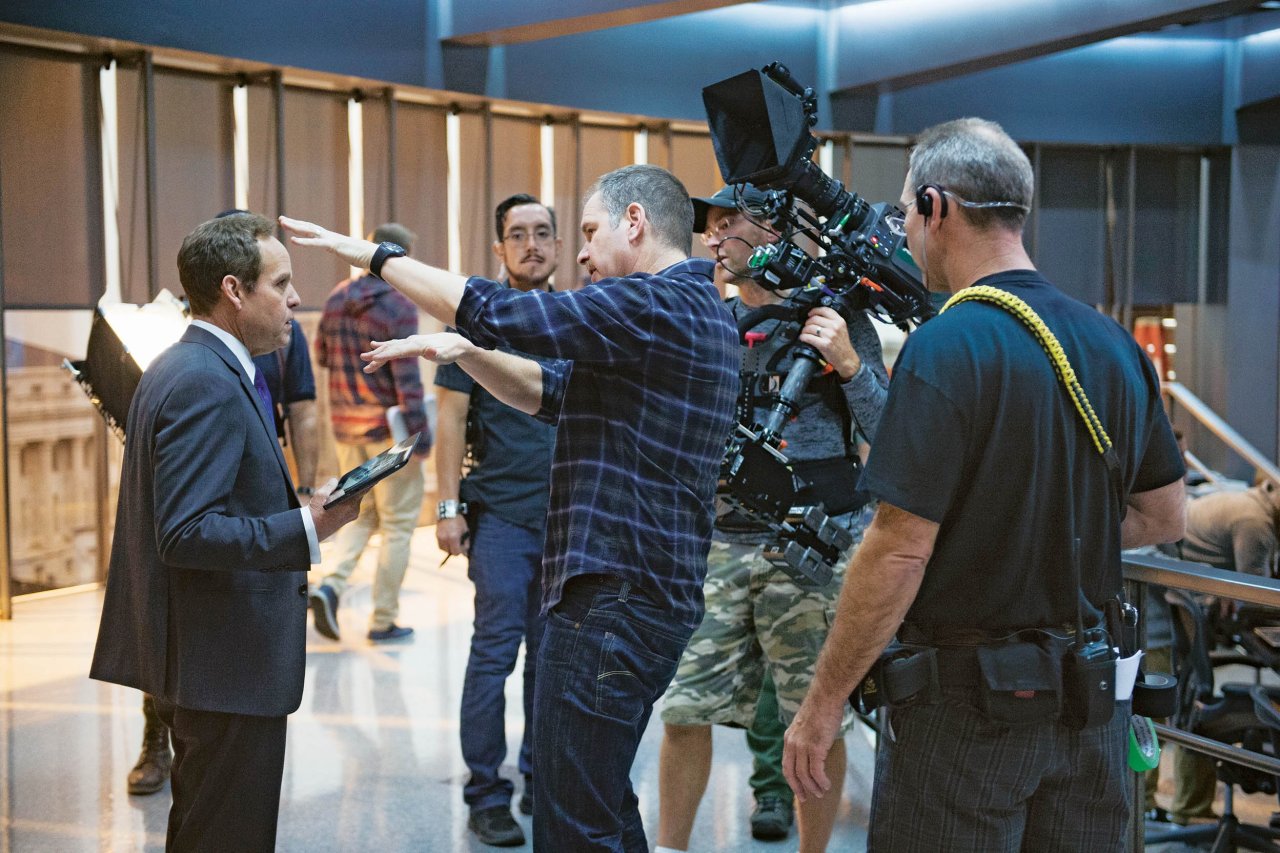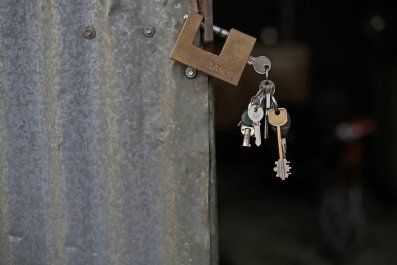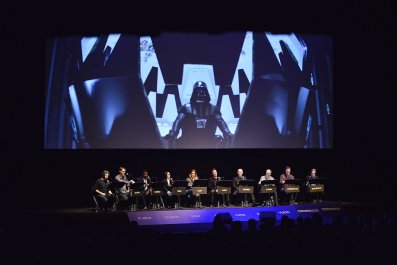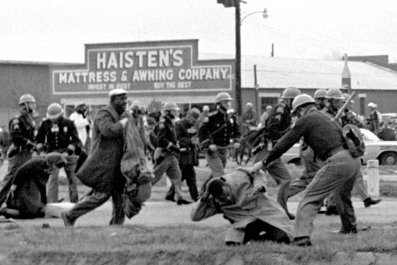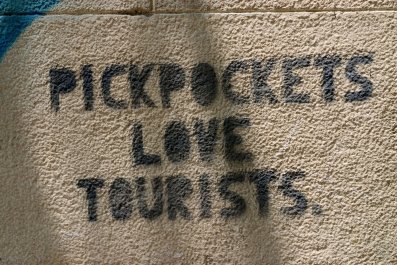More than 20 years ago, DNA forensics appeared to implicate O.J. Simpson in the stabbing death of his ex-wife, Nicole Brown Simpson, and a waiter, Ronald Goldman. Despite abundant evidence—a bloody glove, blood drops, hairs, carpet fibers—the prosecution faced a major hurdle in convincing the jury to convict him, in part because jurors lacked understanding of forensic science. Simpson was acquitted.
In 2000, five years after that famous trial, a television show called CSI: Crime Scene Investigation premiered. Audiences were led under the yellow tape and into the world of forensic science for the first time. Set in Las Vegas, each episode began with the discovery of a body and followed a team of investigators collecting and analyzing evidence, questioning witnesses and catching bad guys.
The show's overwhelming popularity led to two spin-offs: CSI: Miami in 2002 and CSI: New York in 2004. By 2007, the CSI franchise had become a cultural phenomenon; it had not only beaten out the competition in viewership but had successfully injected a new vocabulary and grasp of forensic science into the public consciousness.
In 2010, the creators began brainstorming a fresh iteration that would both venture into unchartered "edutainment" territory and attract huge audiences. (The original series' viewership is decreasing, while the spin-offs are gone.) Their zeitgeisty creation, CSI: Cyber, makes its debut March 4 on CBS.
CSI: Cyber follows FBI Cyber Crime Division investigators led by cyberpsychologist Avery Ryan (Academy Award–winning Patricia Arquette). The team works on the edges of the darknet, the anonymous side of the Internet, solving crimes that "start in the mind, live online, and play out in the real world," according to the show's unofficial tagline.
"Our core CSI viewer will see a level of familiarity from the franchise that will comfort them," Anthony Zuiker, the creator and executive producer of the CSI behemoth, said one morning while lounging in an office within CBS's massive complex in Studio City in Los Angeles. Sitting alongside him was showrunner Pam Veasy, a CSI veteran of more than a decade. She explained that while we are undeniably in a digital age, society's understanding of this technology we use every day is lagging, and CSI is here to help. "I want people to want to educate themselves," she said, smiling broadly. "From a fax to a computer…to signals sent over towers, the [criminal] possibilities are endless."
But not everyone felt the type of education the original CSI provided was a force for good. During the franchise's zenith, social pundits noticed a disturbing trend. Critics claimed that the series' exaggerated portrayal of forensic science caused jurors to place undue weight on forensic evidence. Dubbed "the CSI effect," this phenomenon became increasingly worrisome as scientists began criticizing forensic specialties—like the bite-mark analysis that sent many people to prison—as junk science.
Something similar could go wrong with CSI: Cyber. For starters, cyberpsychologist Ryan, who profiles both cybercriminals and their victims on the show, oversees a pretty unrealistic team. One of the members is hacker Brody Nelson (Shad Moss, who is better known as early-2000s rapper Lil' Bow Wow); the backstory is that upon his arrest for tapping into the stock exchange and wiring a half-billion dollars to his bank account, Nelson was given the choice of using his skills to help the agency or going to prison.
He is joined by another reformed cybercriminal, Raven Ramirez (Hayley Kiyoko of Scooby-Doo!), who serves as the team's resident social media and cybertrends specialist. These turned-good tech whizzes are accompanied by another hacker, who has always worked for the government, Daniel Krumitz (Charley Koontz).
A real-world problem: Not only does law enforcement not (openly) employ criminal hackers but the show's depiction of what they do is not tethered to reality. Hacking is a pretty boring thing to watch. It involves many hours, days or even weeks hunkered over a computer staring at lines of code. Detecting breaches is also no easy feat. But in CSI: Cyber, lines of text are color-coded: Good code appears in green, the malware appears in red, allowing the team to maneuver through computer systems in seconds.
Zuiker called it the cyber equivalent to when CSI: Cyber's predecessors would follow a flying bullet into a body, tracing back the steps of how it happened. "We have a whole new version of that in terms of how we go inside computers," he said.
"Four people staring at a screen for 47½ minutes is not compelling television," James Van Der Beek added, "which is where I come in." Van Der Beek plays FBI Agent Elijah Mundo, a former military man who chases the criminals.
Another of the show's shortcomings is that it has a government bias. Ryan's character is inspired by the work of real-life cyberpsychologist Mary Aiken, who is also the show's main adviser. Having worked with law enforcement groups from Interpol and Europol as well as the U.S. government, Aiken knows firsthand how today's digital tools can be exploited by criminals lurking in the Internet's darknet. But her ongoing relationship with law enforcement also informs how criminals are depicted on-screen. "Before I took on this job," she said, "I went back to law enforcement and asked, 'What do you think of [CSI: Cyber]?' and they said, 'It's an incredible platform to reach out to a huge number of people.'"
And why wouldn't they be happy? Though reports have uncovered mounting instances of law enforcement circumventing warrants to conduct digital searches, Aiken says that on the show the FBI agents "always have to get a warrant...if they want to engage in surveillance."
Representing law enforcement as the unequivocal "good guys" is also reflected in the fact that the creators have no intention of delving into issues that expose government wrongdoing, such as the recent reports of insidious surveillance by agencies of all stripes. "We are not here to make political statements," Zuiker explained.
But that claim of neutrality is an implicit statement. The show's other lead adviser, James Aquilina, also has deep ties with government. In his current position as a member of the executive management team at Stroz Friedberg, a global digital risk management and investigations firm, Aquilina supervises digital investigative assignments for multiple entities, including government agencies. He also helped establish and run the legal section of the FBI's Emergency Operations Center following the 9/11 attacks.
In fact, when preparing for his role, Bow Wow said, "I didn't speak to one hacker, actually." But what a hacker might have told Bow Wow is that forces working against government interests are not necessarily the bad guys. Some would argue, for instance, that former National Security Agency (NSA) analyst Edward Snowden, who exposed the government's secretive mass surveillance infrastructure, did American citizens a great service.
Throughout the show's creation, advisers partial to law enforcement were the ones asked for guidance in portraying cybercriminals, molding what constitutes a crime and reflecting how cybercrime is investigated and prosecuted. This mass-disseminated message will inevitably affect the public's understanding of the Web.
For instance, characters on the show often refer ominously to the "dark Web" without fully explaining what it is. This leads the viewer to believe it's a sinister place, as the show's focus is on crimes that occur there. But Tor, the common software used for anonymous communication in this part of the Internet, was created by the U.S. Navy. To suggest that all darknet activity is lascivious and that those lurking in its shadows are the primary threat bolsters the government's claim of benevolence.
After Apple and Google announced in September that their operating systems would be encrypted by default, rendering devices impenetrable without the owner's pass code, law enforcement was quick to condemn the move. FBI Director James Comey said in a major policy speech that by not creating backdoor access, the agency would effectively be left in the dark and unable to properly combat crimes. Like the show itself, such declarations are a smokescreen for government activity.
For instance, it has been widely reported that government agencies are finding "zero days," which are undiscovered software vulnerabilities that can be exploited (like in operating system software), and not sharing their existence with manufacturers. By doing so, agencies are placing their own desires, in this case their ability to snoop, ahead of citizens' cybersecurity—just like the hackers being vilified on the show. As the nation gets drawn into more and more debates on cybersecurity—deciding the proper balance between protecting American civil liberties, Internet security and the ability of law enforcement to do its job—CSI: Cyber's skewed representation of hacking and cybercrime could work in the government's favor.
Just weeks ago, a jury convicted Ross Ulbricht, a 30-year-old Texan, of being the mastermind behind Silk Road, the notorious darknet drug market. The FBI used what some consider questionable investigative tactics to catch him, including breaking into a secure Internet browser without a warrant.
As the Silk Road trial began, it was clear that the jury's technological knowledge-gap would be exploited by the government's prosecutors. In opening statements, they referred to the Tor-hidden market as "a dark and secret part of the Internet," while the defense said it could be used for "legitimate means"— to exchange goods outside of the government's purview. And Ulbricht has repeatedly said that Silk Road was his attempt to create a truly free and open marketplace, one beyond the regulations and snooping of government agencies. Ulbricht was found guilty of seven charges—including narcotics trafficking, money laundering and computer hacking—and faces at least 30 years in prison.
"In 15, 20 years everyone will know what malicious script is and never to click on a pop-up that says to update your software," Van Der Beek said with optimism. But if CSI: Cyber also makes it easier for the NSA to drill down further into your life, will it have been worth it?
CSI:Cyber airs on March 4 at 10:00 PM ET/PT on CBS.



